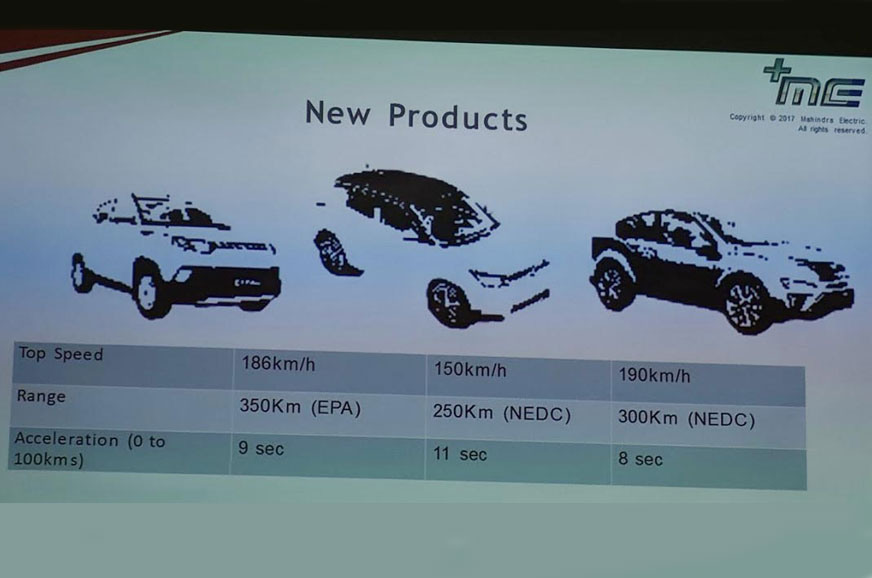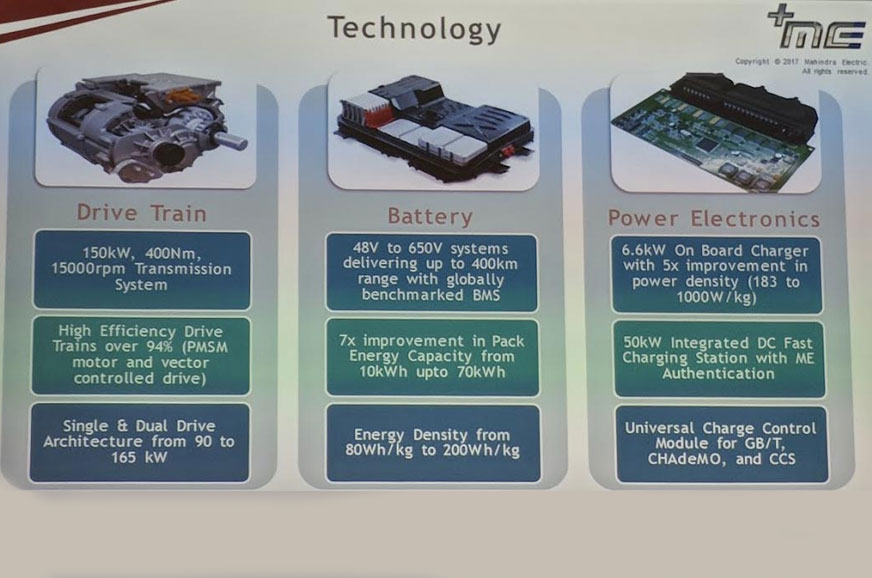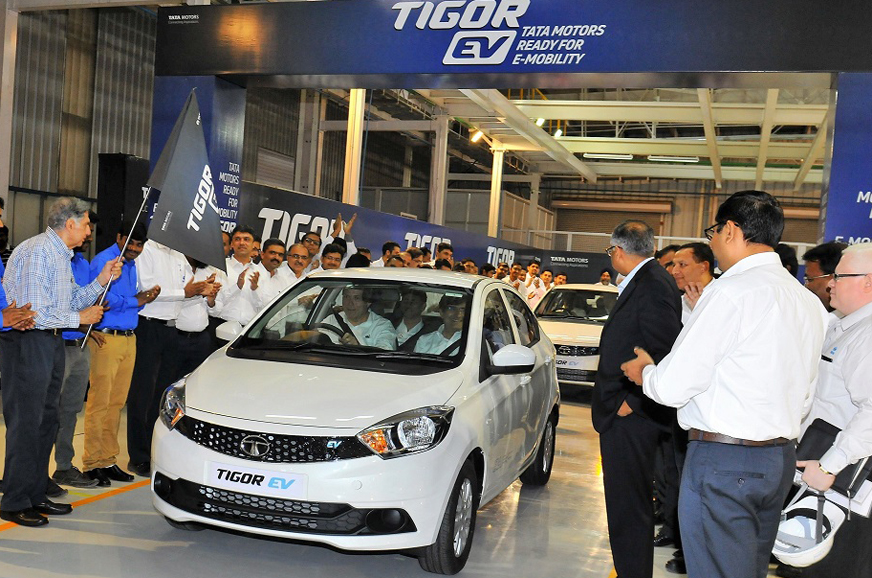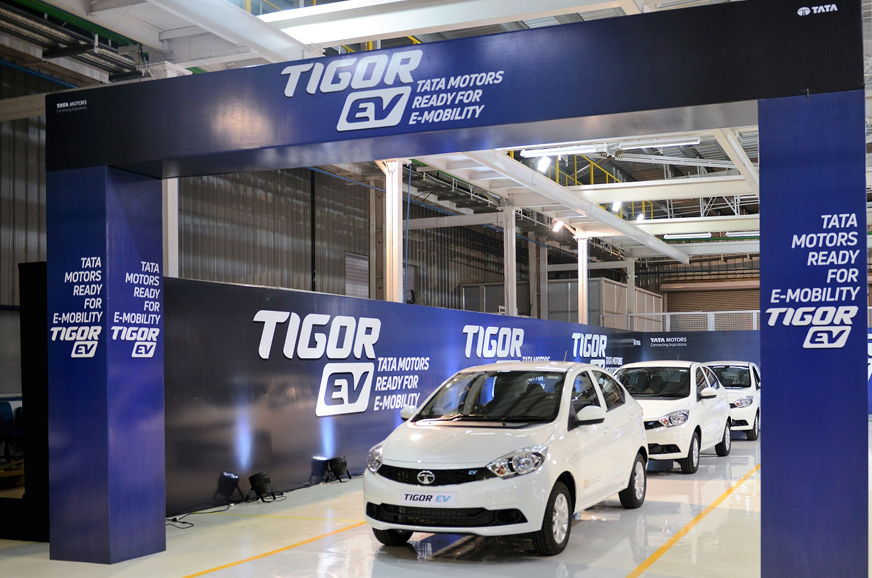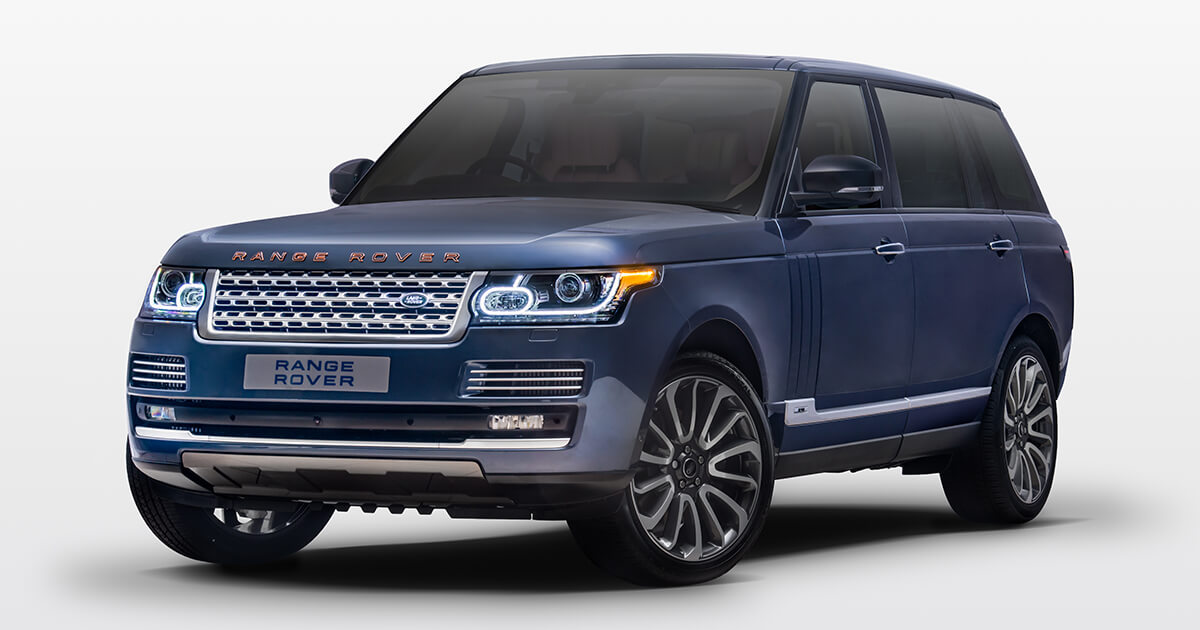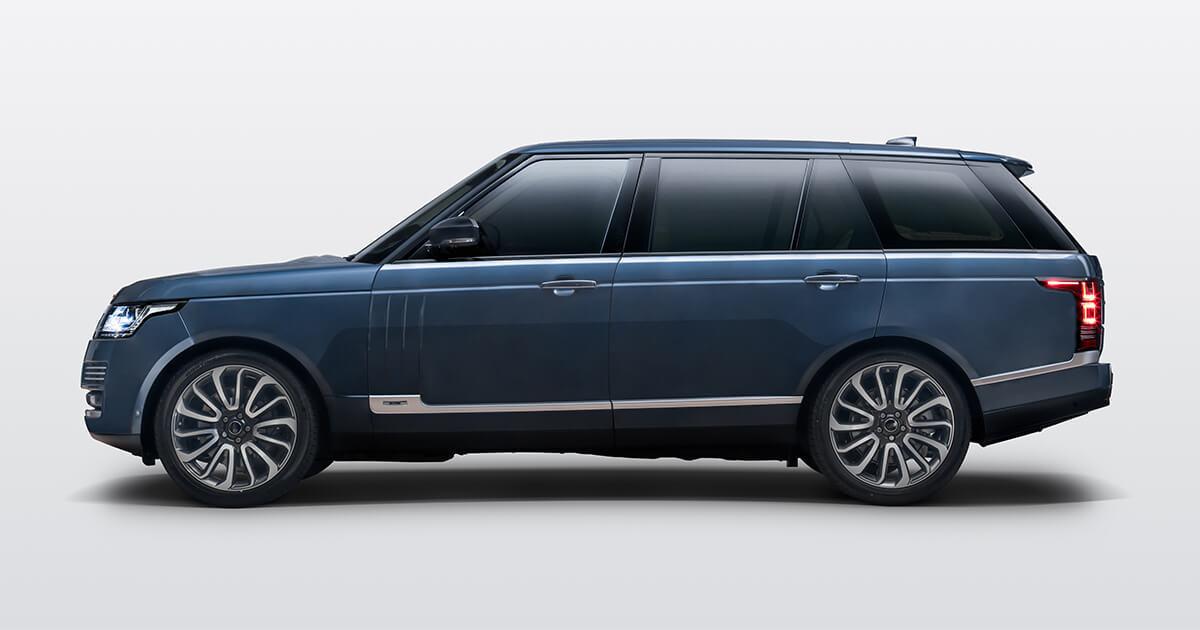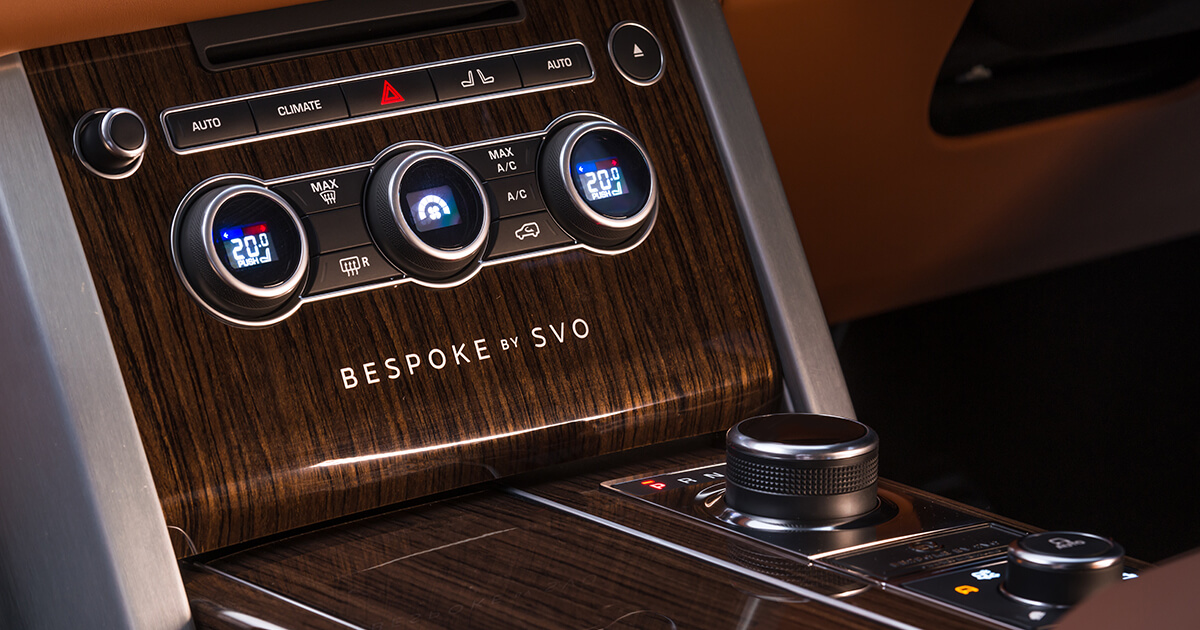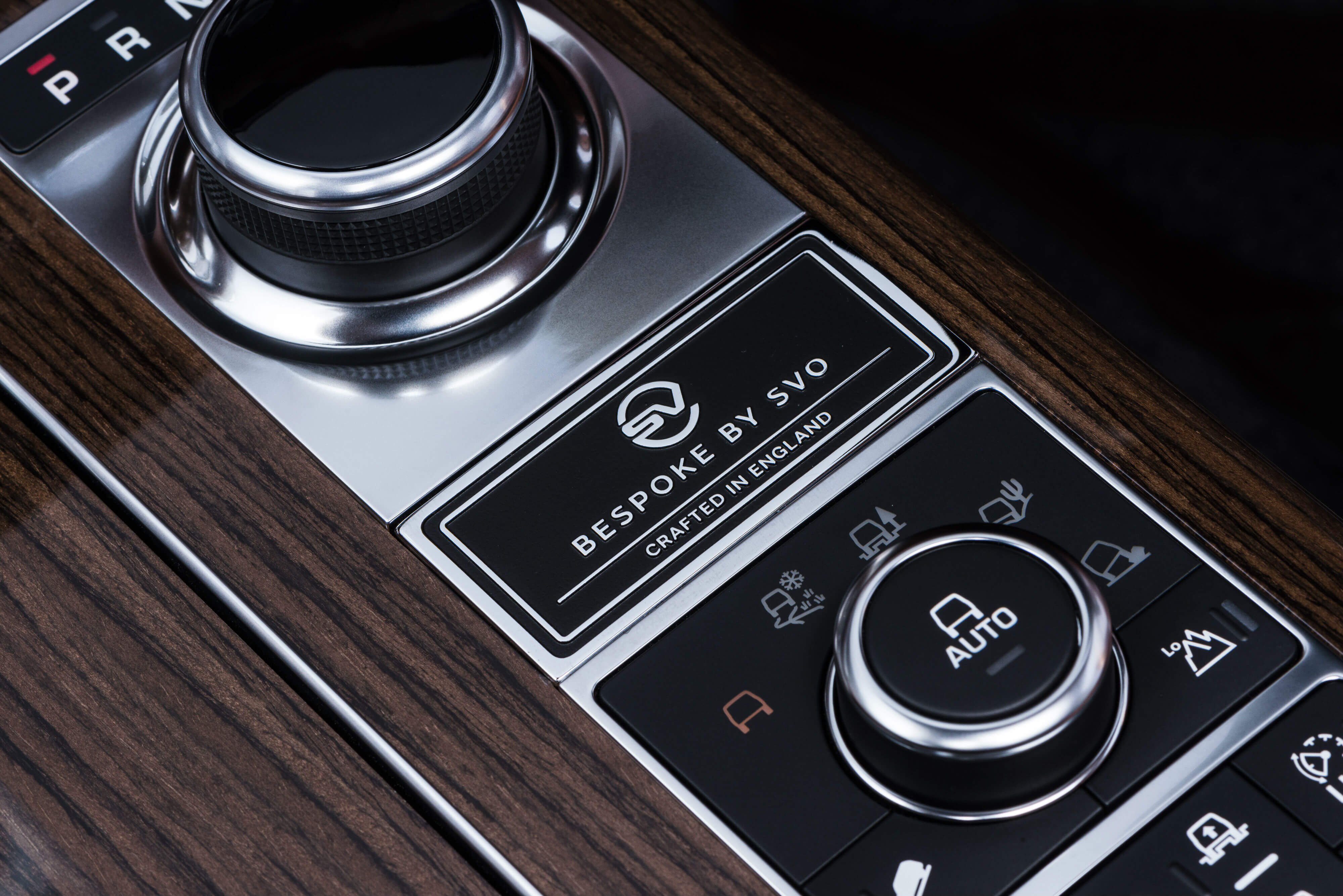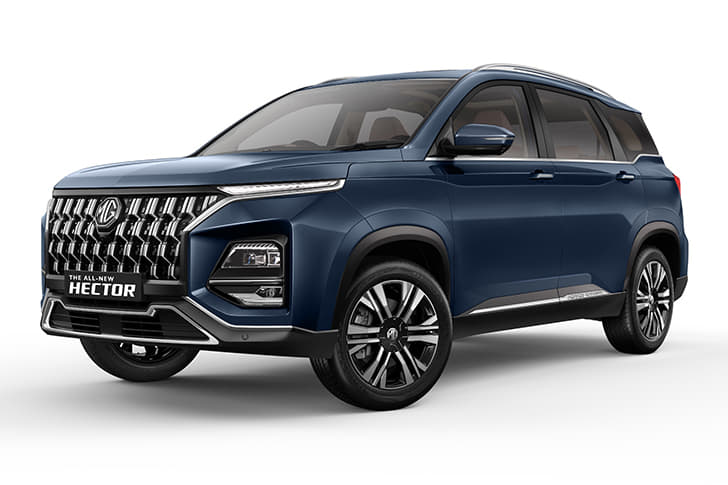At an electric vehicle conclave held at the Norwegian embassy in New Delhi, Mahindra’s EV arm, Mahindra Electric disclosed plans to launch three new electric vehicles in India.
"I am hugely bullish on India going forward with electric technology and it is clear that EVs are the way forward. We are working on three new products with higher range (between 250-350km) and we will announce them by 2019-2020," Mahesh Babu, CEO, Mahindra Electric said.
The first of the three products will be an electrified version of its KUV100 hatchback which will go on sale by end-2018. Mahindra's small car will have a range of 350km under the EPA’s (Environmental Protection Agency) testing cycle. The company claims the vehicle will be capable of hitting a top speed of 186kph with a 0-100kph time of 9sec.
The second EV, though not officially confirmed, is touted to be Mahindra's own version of SsangYong’s Tivoli. It will deliver a real-world range of 250km under the NEDC (New European Driving Cycle) and is said to boast a top speed of 150kph, with a claimed 0-100kph time of 11sec. Mahindra is already developing a crossover in synergy with its Korean subsidiary for introduction in late 2018. An electric Tivoli will be the focus of SsangYong’s own electric car programme as reported by our sister publication Autocar UK.
The third model will be based on the XUV500 and could very well be the electric version of the XUV Aero, the SUV-coupé concept which was showcased at the 2016 Auto Expo.
Earlier this year, company managing director Pawan Goenka had hinted at the electric XUV Aero being "one of the options that the company is investigating". However, he cautioned that production would heavily depend on the cost of the high-voltage powertrain technology. Mahindra did reveal a range of 300km (as per NEDC tests) and a brisk 0-100kph claimed time of 8sec for such a model.
Mahindra believes India is set to witness a significant increase in EV adoption with projections suggesting 38 percent of total passenger vehicle sales coming from EVs by 2030. This figure, as projections indicate, could even go to up to 60 percent in case of hyper-adoption of the technology. At present, EVs make up a minuscule portion of total car sales. In 2016-17, electric car sales in India stood at 2,000 units, accounting for a meager 0.07 percent of total passenger vehicle sales (3,046,727 units).
The automaker revealed earlier this year that it is developing highly efficient electric powertrains with power outputs ranging from 90 to 165kW (120 to 204hp). Expanding on the plans, Babu said, “These are going to be highly efficient PMSM (Permanent Magnet Synchronous Motor) and vector-controlled drive systems, taking the efficiency from 80 percent to 94 percent.”
Mahindra is also working on high-density batteries which are believed to enable electric cars to better compete with conventional petrol engines in range. “Our focus is also on high-density batteries, taking the density from 80Wh/kg to 200Wh/kg with up to seven times the pack energy capacity from 10kWh to 70kWh. These 48V to 650V systems will be capable of delivering real-world range of up to 400km with globally benchmarked BMS (battery management systems),” added Babu.
With inputs from Mayank Dhingra, Autocar Professional.


